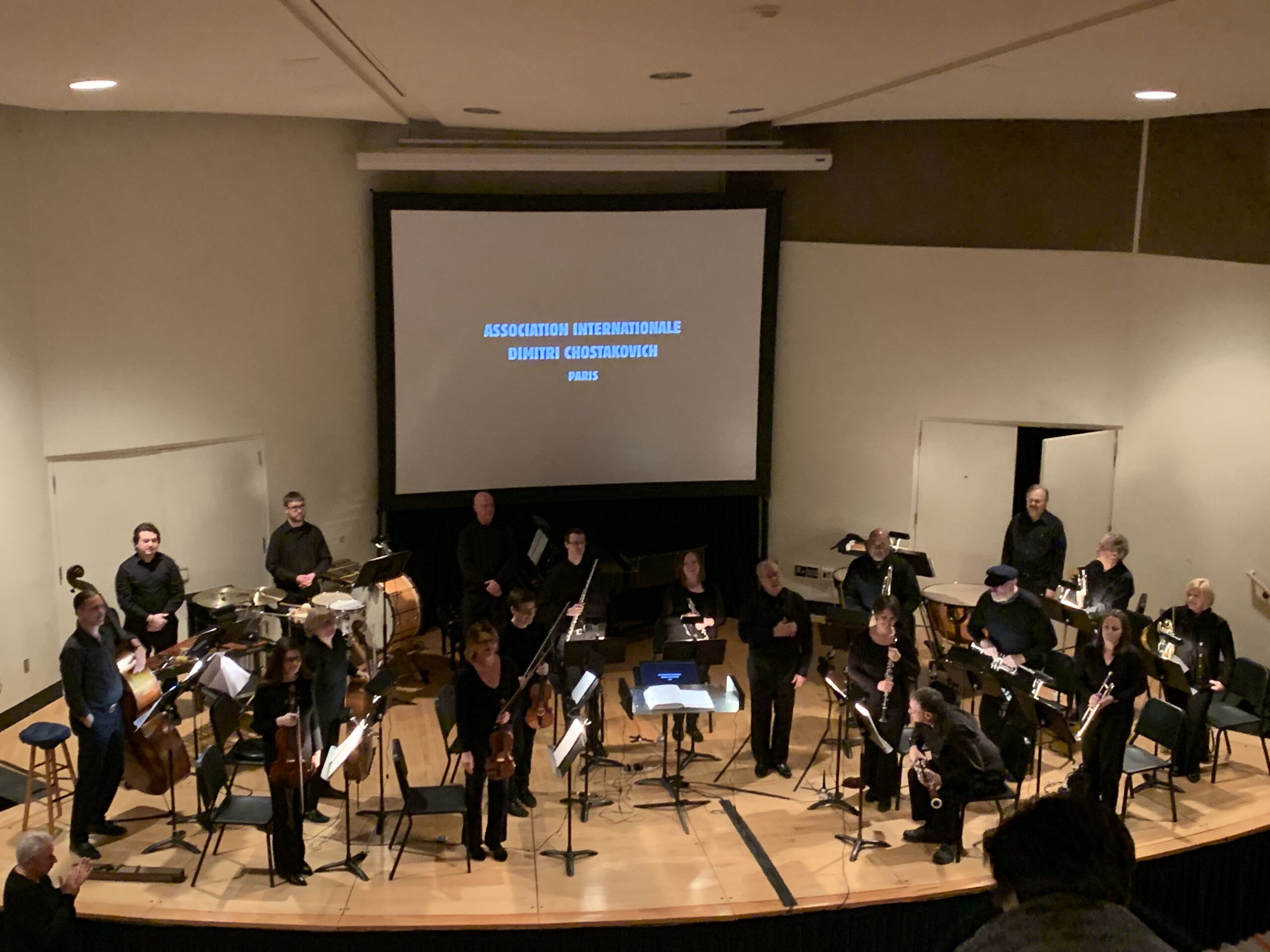
I recently had the pleasure of conducting Dimitri Shostakovitch’s score to the 1929 Soviet film by Grigori Kozintsev & Leonid Trauberg The New Babylon. This was an early score, opus 18, written when Shostakovitch was in his early 20’s. The Westerville Symphony accompanied the restoration of the film by Marek Pytel.
I have conducted a number of film scores over the years including Charlie Chaplin’s City Lights, Lillian Gish’s The Winds, and Einsenstein’s Potemkin (with a pasted together score of the existing music of Shostakovitch). I worked with John Williams on a project that took me into the realm of modern film, and, of course, I’ve done more than my fair share of Disney shows. Conducting for film is the heaviest lifting for musicians, as a singer or dancer will try to accommodate the musicians, but a film is ruthless! Orchestra’s breathe and phrase differently, and a good conductor adjusts to their personality while maintaining the artistic integrity. In film conducting, the film dictates the tempi, ignoring the common consensus.
For this performance, British film scholar Marek Pytel sent along a collection of background information as well as a study video of the film, which is quite different from several that are available on line. Here is an example of those readily available:
The score is available from the recent DSCH publication of the collected works of Shostakovitch. To prepare, I used Marek’s video with a time code, which I also employed in the performance to synchronize the music with the screen.
Evidently the Soviet censors took issue with many elements of the film which details the conflict between the bourgeois and the Paris Commune of 171-. The New Babylon was actually a department store and the heroine of the film, Louise, works there as a salesgirl. The score has some charming quotes from Offenbach’s Orpheus and La Belle Helene as well as the Marsallies. It is a young Shostakovitch, but it alludes to his mature vocabulary in many ways.
The interesting challenge for the conductor is that none of the versions, including Marek’s, comfortably match the score. Research indicates that the premiere was a challenge as the orchestra and a pianist traded off as the two forces tried to match the film. Shostakovitch apparently was out to prove himself by writing a score that no one could play! The result was a lot of decision-making on my part to create a version that matched the action as best as possible, while reaching THE END at the final measure!
Perhaps the most interesting decision is how to end the work. The actual video is lost, and Marek’s version ends with a series of reconstructed slides which describe the original, sarcastic ending. While Shostakovitch left a fragment that we presume was intended for this portion of the cinema, it too, is incomplete. Marek suggests use of Shostakovitch’s ballet, The Limpid Stream, but it was written long after the film score. I elected to return to previous material from the Babylon score for the final coda.
What drew me to program the score, aside from its intrinsic value of being Shostakovitch, was that it was of the first films to actually engage a composer. Before this development, conductors of movie houses actually were responsible for putting together “scores” made up of music pulled from their libraries supporting whatever emotion was being portrayed on stage. There were, at the height of the silent film era, there were 6 full time orchestras in the Columbus area, and each indulged in this practice. Conductors, naturally, received a separate fee for creating these arrangements. So the advent of a dedicated film score for the cinema, was probably met with, skepticism as well as a certain degree of animosity.
The challenge was clearly a stretch for the Westerville orchestra. Technically, the piece is demanding, as is enduring the breadth of the event, one hour, thirty-three minuets and 13 seconds with little or no downtime.
As a part of his research, Marek is quick to share a letter from Shostakovitch, recalling the score and forbidding its performance or recording. This restriction was never overturned. I feel SO subversive! The next post may come from the gulag!

